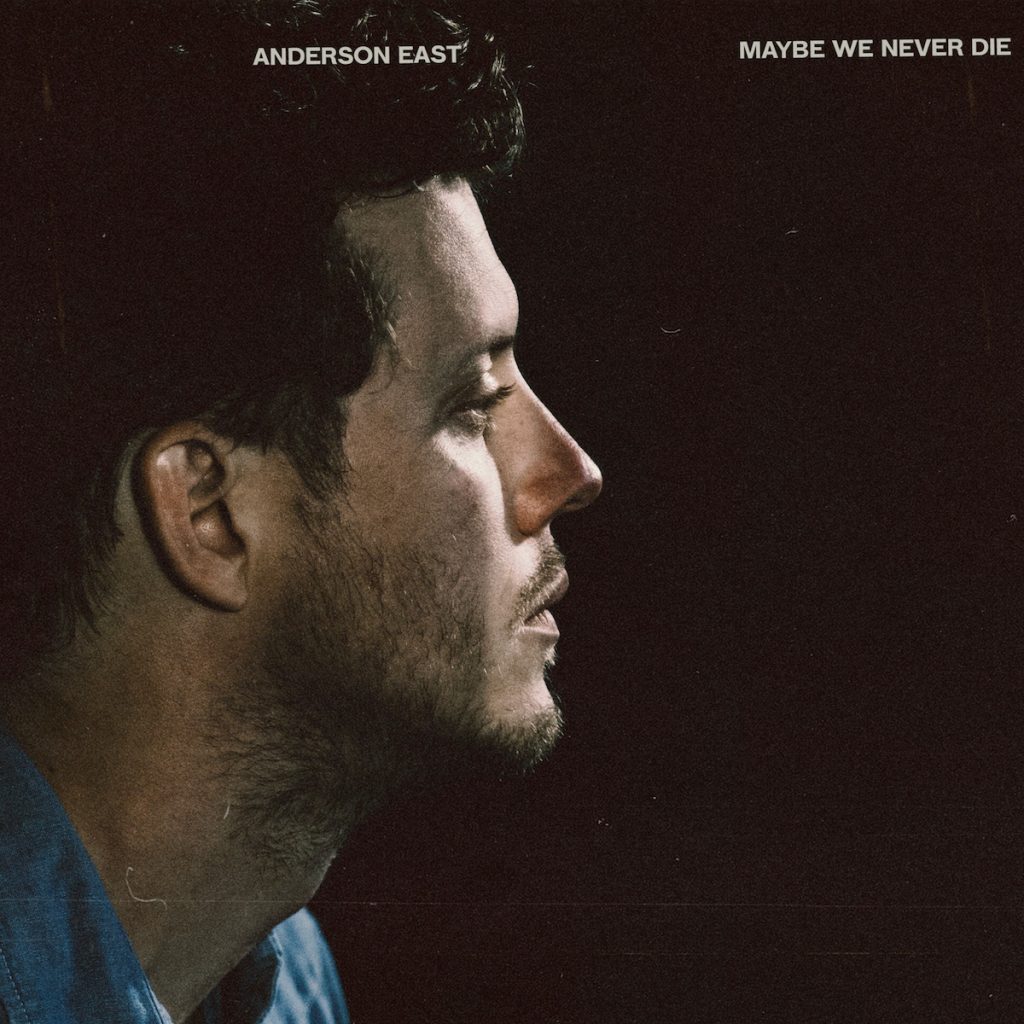On ‘Maybe We Never Die,’ Anderson East Takes His Sound in a New Direction

Props to Anderson East.
With his first two albums, Delilah and Encore, he carved out a niche for himself at the nexus point of late-’60s, Stax Records-indebted soul and introspective alt-country. Anchored by a malleable voice that can alternate between an authoritative rasp and tenderhearted croon, it’s an amalgam of styles that’s worked out pretty well for East thus far.
On his latest LP, Maybe We Never Die, East chooses to eschew the tried-and-true in favor of new textures and sonic influences that take him away from straightforward roots-based music and into the realm of ’80s and ’90s R&B. To his credit, he pulls this shift off with aplomb.
That new approach is jarring for the first couple of songs. The title track and “Lights On” are the type of moody, slow burn that East excels at, but are vastly different in construct than anything he’s recorded previously. Past material in that vein was unadorned, allowing space for his gritty vocals to float over. It’d be a bridge too far to dub them glossy, but these keyboard-heavy songs are denser in arrangement, and East’s delivery is lower in the mix and silky smooth, more in line stylistically with Leon Bridges than, say, Solomon Burke or Wilson Pickett.
The uptempo tunes are irrepressible, and instead of evoking classic soul, East opts for what could best be described as beefed-up disco. “Drugs” is a bop, as the kids say, its thumping beat pairing nicely with the paranoia and anxiety of the lyrics. East gives his falsetto an extended workout on the bass-and-synth-centric “Falling,” which sounds like a track that’s just a shade too dark to have been on Michael Jackson’s Dangerous.
Maybe We Never Die isn’t solely an exploration into more modern R&B, nor does it completely ignore East’s roots. “Like Nothing Ever Happened” and “If You Really Love Me” are essentially classic, piano-based singer-songwriter tracks, and if you replaced the keys on “Hood of my Car” with an acoustic guitar or an organ and slowed the pace down just a touch, it could easily fit on either of his prior records.
What ties everything together, the new sounds and the old, are East’s confidence as a singer and lyrics rooted in melancholy, anxiety, and emotional vulnerability. There’s a consistency in both the words and the music, helping to ensure that the experimentations and new approaches on Maybe We Never Die pay off in full.



